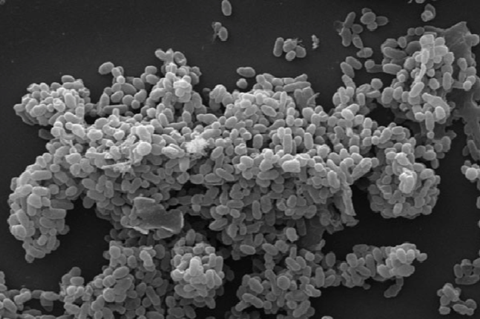A research team investigates how mucin, a major component of the gut lining, and food-derived glycoproteins influence the growth of the bacterium Akkermansia muciniphila. By dissecting the role of mucin’s protein and glycan components, researchers reveal the complex interactions between diet and gut bacteria, offering insights for future therapeutic applications.

Akkermansia muciniphila, a key bacterium in the human gut, plays a crucial role in balancing health and disease. Mucins, a family of glycoproteins found in the gut’s protective mucosal layer, serve as its primary nutrient source. The glycan chains attached to mucins, known as O-glycans, make up 80% of their molecular structure, making them critical for A. muciniphila’s growth.
READ MORE: Early life exposure to common chemical permanently disrupts gut microbiome
READ MORE: Cranberry extracts could boost microbiota and counter cardiometabolic diseases
While previous research has emphasized the importance of mucin as a nutrient source, the distinct roles of its protein and glycan components in supporting A. muciniphila have remained largely unexplored. Additionally, the role of food-derived glycoproteins, such as those found in milk and eggs, in modulating A. muciniphila’s growth has not been fully understood.
Modulating the microbiome
A study (DOI: 10.48130/fmr-0024-0013) published in Food Materials Research on 13 August 2024 underscores the significant role that dietary components play in modulating the gut microbiome.
In this study, researchers used high-performance liquid chromatography (HPLC) to characterize mucin O-glycans and food-derived N-glycans, focusing on their structural attributes and effects on Akkermansia muciniphila growth. Mucin O-glycans, released by β-elimination, exhibited retention times between 5-25 minutes, with simpler structures such as disaccharides to tetrasaccharides predominantly eluting between 5-15 minutes.
In contrast, N-glycans from bovine milk and egg proteins had later retention times, ranging from 20-40 minutes, highlighting their complex structures. These results indicated the distinct roles of these glycan types in bacterial growth dynamics. A recombinant, nonglycosylated version of mucin was also synthesized to investigate the impact of mucin glycosylation on A. muciniphila.
The study found that native mucin and its O-glycans significantly promoted the bacterium’s growth, particularly during the logarithmic phase, while bovine milk N-glycans inhibited growth. Egg-derived N-glycans had no notable effect. These findings suggest that specific glycan structures from mucin and dietary sources differently influence A. muciniphila proliferation, with implications for gut health and potential therapeutic applications.
Targeted probiotics
According to the study’s lead researcher, Dr. Li Liu, “Understanding the nutritional preferences of A. muciniphila and how various components of mucin and dietary glycoproteins affect its growth offers significant potential for developing targeted probiotics and dietary interventions aimed at maintaining gut health. Our findings provide a deeper understanding of how diet shapes the gut microbiome, with important implications for managing metabolic and immune-related diseases.”
This study provides a deeper understanding of how mucin O-glycans and dietary glycoproteins influence A. muciniphila’s growth, offering valuable insights into the interactions between diet and the gut microbiome. With potential applications in the development of prebiotic therapies and personalized dietary interventions, this research opens new avenues for improving gut health and preventing disease.







No comments yet